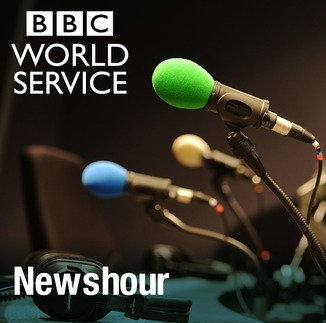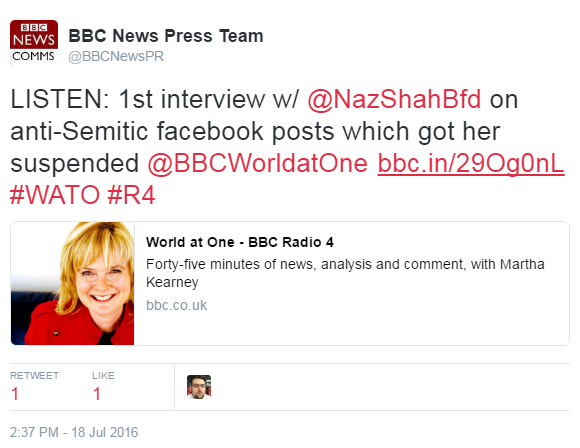The November 14th afternoon edition of the BBC World Service radio programme ‘Newshour’ included an item (from 30:07 here) relating to the supposed ceasefire between Israel and the Palestinian Islamic Jihad. Jerusalem-based reporter Tom Bateman told listeners that: [emphasis added]
Bateman: “Islamic Jihad has claimed that Israel agreed not to use live fire – live ammunition – on protesters during weekly protests at the perimeter fence and it’s declared that a big victory for the resistance. Israel has said – its foreign minister, Israel Katz – that that simply is not the case and that what it calls its open fire policy will continue.”
Obviously, listeners unfamiliar with the details of the topic may well have understood from Bateman’s words that Israel has a “policy” of opening fire on people he had seconds earlier described as “protesters”.
But where did Bateman get that ambiguous phrase “open fire policy”? Coincidentally or not, the same phrase appeared an article published by the Reuters news agency earlier in the day:
“But Israel said it would observe only a limited quid pro quo. “Quiet will be answered with quiet,” Foreign Minister Israel Katz told Army Radio. […]
Katz said there would be no change to Israeli military policy in Gaza, contradicting the assertion of Islamic Jihad.
Targeted killings “will not cease”, he said, and “the open-fire policy for which the Israel Defence Forces is responsible (at the Gaza border) will not change”.”
It is clear in that interview (Hebrew) that Katz was referring to standard operating procedures (SOPs) used by the IDF which (see page 19):
“…forbid the use of potentially lethal force against rioters save for exceptional circumstances. Potentially lethal force is permissible only where a violent riot poses a real and imminent danger to the life or bodily integrity of IDF forces or Israeli civilians, and only as a measure of last resort. The SOPs emphasize that the danger must be first addressed by way of verbal warnings and non-lethal means. If these means have been exhausted (or were unfeasible in the circumstances) and the danger has not been removed, the SOPs allow – subject to stringent requirements of necessity and proportionality – precise fire below the knees of a key rioter or a key instigator, in order to remove the real and imminent danger the riot poses.”
There is of course an important difference between violent rioters who pose an “imminent danger to IDF forces or Israeli civilians” and “protesters…at weekly protests” as described by Bateman.
As we have repeatedly documented on these pages, most of the BBC’s reporting on events along the border between Israel and the Gaza Strip over the past 20 months has promoted very specific framing which has inaccurately portrayed the ‘Great Return March’ rioting as “protests” and “demonstrations” and the participants as “protesters”, while concealing the hundreds of violent incidents such as shooting attacks, IED attacks, grenade attacks and infiltration attempts which have taken place during those so-called “protests”.
The result of that editorial policy of promoting a sanitised portrayal of the events is that the BBC’s Jerusalem bureau correspondent now misleads audiences by falsely claiming that Israel uses, and will continue to use, “live fire – live ammunition – on protesters”.
Related Articles:
BBC News avoids the word terror in report on strike on terrorist
‘Quite forthcoming with the confrontational approach’: guess what the BBC is describing
Rocket attacks on Israel prompt BBC WS interview with serial Gaza contributor
BBC R4’s Mishal Husain sells her listeners short with self-indulgence
BBC News website adheres zealously to editorial guidelines
BBC doublethink on display in report on rocket attacks
BBC abandons independent verification in reporting on Gaza casualties




